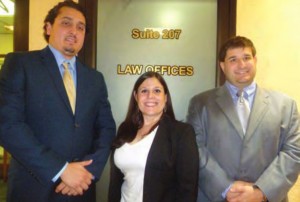The Five W’s of Trusts (What, Who, Why, Where, and When)
Since my last article, people have been calling my office and inquiring on what a trust is and its potential benefits. As a result, I have decided to focus this month’s article on answering, what I like to call, the 5 W’s of a trust.
1) What: a trust is a legal document that transfers property during or after a person’s lifetime for the benefit of someone. The 2 most common types of trusts are: A Revocable and an Irrevocable Trust. A revocable trust can be changed or altered at any time by the creator or creators of the trust during his or her lifetime. In most circumstances, an irrevocable trust cannot be altered or changed.
2) Who: a trust can be made out for the benefit of any person that you may want, including young children, your spouse, a friend, or your parents.
3) Why: a trust can automatically transfer property without the use of a will or the need to go to court. Additionally, the use of a trust is usually faster than that of a normal will in transferring property and title as well as it helps avoid the lengthy process of probate in courts. A trust also has the following benefits: it secures your property for the benefit of your beneficiaries, it protects the property from claims from creditors while in the trust, and it also ensures your privacy (as a trust does not become a public record like a will does). Some trusts may even better your tax status with certain trusts if you fall above the taxable exemption.
4) Where: a trust can dispose of property anywhere, so long as the local law of where the property is located is followed and the property is properly titled in the name of the trust.
5) When: a trust can be created today with the help of our attorneys.
A trust is a very important document for the preservation of your property in the event of death or incapacitation. There are many factors to consider in creating a trust document and only a licensed attorney can walk you through the fine details of both the creation and the proper funding of a trust. The Coral Springs Probate Attorneys at Reinfeld & Cabrera, P.A. have experience in creating trusts and can formulate a trust to meet all your needs. Call us now to schedule a free initial consultation and to discuss our special rates. We are your Coral Springs lawyers. We offer legal services in Coral Springs, Tamarac, Margate, Fort Lauderdale, Coconut Creek, Pompano Beach, Deerfield Beach and Surrounding areas.

 If you have recently moved to or have always lived in Florida our trusted estate planning attorneys in Coral Springs at Reinfeld & Cabrera, P.A. are here to tell you more about the basics of estate planning in Florida. The last thing you generally think of when deciding to retire in Florida is estate planning and sourcing estate planning attorneys. In Coral Springs you could easily spend your golden years playing golf, sunbathing on the beach, having the grandchildren visit, and quite simply enjoying your retirement. However an important consideration that is all too often overlooked is what will happen to your property without proper estate planning?
If you have recently moved to or have always lived in Florida our trusted estate planning attorneys in Coral Springs at Reinfeld & Cabrera, P.A. are here to tell you more about the basics of estate planning in Florida. The last thing you generally think of when deciding to retire in Florida is estate planning and sourcing estate planning attorneys. In Coral Springs you could easily spend your golden years playing golf, sunbathing on the beach, having the grandchildren visit, and quite simply enjoying your retirement. However an important consideration that is all too often overlooked is what will happen to your property without proper estate planning?  When it comes to
When it comes to  At Reinfeld & Cabrera P.A. we understand that many of our clients may have concerns when it comes to
At Reinfeld & Cabrera P.A. we understand that many of our clients may have concerns when it comes to  We at Reinfeld & Cabrera P.A. believe that planning ahead for minors during your
We at Reinfeld & Cabrera P.A. believe that planning ahead for minors during your 
 It’s that time of year again where you get to vote for your favorite businesses in Coral Springs! The Coral Springs City News Reader’s Choice Awards honours outstanding local businesses by allowing the readers to choose their favorite businesses in a number of categories. This year we are happy to announce that we have been voted by you, the readers of City News, as the favorite estate planning and probate attorneys in Coral Springs for the second consecutive year.
It’s that time of year again where you get to vote for your favorite businesses in Coral Springs! The Coral Springs City News Reader’s Choice Awards honours outstanding local businesses by allowing the readers to choose their favorite businesses in a number of categories. This year we are happy to announce that we have been voted by you, the readers of City News, as the favorite estate planning and probate attorneys in Coral Springs for the second consecutive year.
